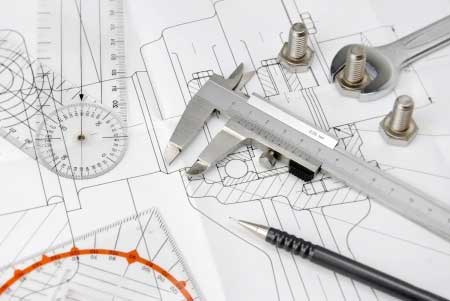
The automation of any manufacturing process always raises questions about whether we will lose the engineering knowledge associated with the tasks. But all indications are that automation will need to increase in manufacturing in the UK if we are to keep up with the rest of Europe.
We’ve seen 3D printing grow hugely in the last few years. To start with it was only simple 3D models that were printed. Now we are using 3D printers to produce aircraft parts, prosthetic limbs and there are even food printers now. There are also ongoing developments into printing using metals and other materials. Last week saw the designs for a socket set being emailed to the space station where it was then printed out and is currently in use.
The Guardian recently reported that it would shake up the manufacturing supply chain, allowing businesses to produce more of their own supplies. With consumers wanting goods delivered quickly, their belief is that 3D printing will make it possible for businesses to consistently deliver goods in tight timescales.
However, is there a danger of us losing the engineering knowledge we have today with the younger generations coming through? There are already differences of opinion about the need for practical engineering experience. In the UK, some feel the practical experience comes far too late with schools no longer offering the practical subjects and use of machinery that is needed to spark an interest in engineering. If we don’t spark an interest in engineering subjects early enough, the increased automation of processing means that there could well be a perception that much of engineering is simply running machines – which is far from the truth.
This view was also shared in a report by The Engineer earlier in the year, where they had indentified that gaps in engineering knowledge in specialist areas was resulting in the lack of supply of suitably qualified candidates to fill posts. The reason given for that? Students don’t know the full range of opportunities available in the engineering sector. We need to educate our students about engineering opportunities much earlier.
So, back to the original question of whether we are in danger of losing our engineering knowledge in the UK with the increased requirement for automation. If we take 3D printers as an example again, their cost is reducing and it won’t be too long before they will be finding their way into consumer’s homes. Just how much knowledge do you need to operate one and print effectively? And does it help with the education of the manufacturing processes? Does it spark an interest in the processes or does it just make a complicated job easy?
Well, The Engineer recently took a 3D printer, a set of designs and set to work to put this question to the test. The entertaining article Should you buy you kids a 3D printer for Christmas? found that 3D printing is not as easy as it looks! Whilst they found some shortcuts to help them along the way, a knowledge of the way the machinery works, the physics involved and some good old problem solving skills were needed to help them complete their project. Their conclusion?
A 3D printer is likely to engender a greater understanding of how the structure of whatever it is they want to make has a big impact on how they build it. It will help teach them physics, computing and a wide variety of problem-solving skills.
So, is the answer to get more of this type of equipment into schools and get students using it? By doing so, is it likely to increase the interest in engineering subjects and so fill the skills gap?
What’s your view? Are we losing our engineering knowledge in the UK? Do we need to do more to spark the interest of children at a younger age if we are to inspire the engineers of the future?
Image Copyright: / 123RF Stock Photo
This site uses Akismet to reduce spam. Learn how your comment data is processed.


 Mail:
Mail: 




Leave a Comments